Japan has become one of the best crypto exchanges for in the world, driven by a surge in interest from both experienced traders and newcomers. With its well-regulated market and growing adoption of crypto assets, the Japanese market offers unique opportunities for crypto traders seeking to trade in Japanese yen and explore diverse trading strategies. As crypto trading gains traction, the importance of choosing the best crypto brokers in japan cannot be overstated.
Selecting a trustworthy trading platform is crucial for a seamless trading experience, whether you're focusing on advanced trading tools, margin trading, or strategies like copy trading. Evaluating factors like trading fees, robust security measures, and japan crypto exchanges regulations helps traders optimize their crypto portfolio and navigate the crypto market with confidence. This guide outlines the key criteria to identify the top Japanese crypto exchanges, ensuring both professional traders and active traders can maximize their trading opportunities.
Key Criteria for Evaluating Crypto Brokers
When evaluating the best crypto brokers in Japan, several factors are critical for ensuring a seamless trading experience. A reliable crypto exchange should cater to Japanese top crypto exchanges by offering advanced trading tools suitable for both beginners and experienced traders. Access to the cryptocurrency trading with features like margin trading, copy trading, and futures trading provides diverse trading opportunities.
The Japanese market is unique, governed by Japanese crypto regulations under Japan's Financial Services Agency, ensuring crypto trading legal status. Brokers must provide competitive trading fees, secure bank account integrations, and two-factor authentication for robust security measures. For Japanese traders, a user-friendly interface, mobile trading app, and support for Japanese yen are essential. Whether focusing on advanced trading features or low fees, the top crypto traders and crypto businesses benefit from brokers with helpful customer support and tools for technical analysis, ensuring efficiency and maximize profits.
The 5 Best Crypto Brokers in Japan in 2024
#1. bitFlyer
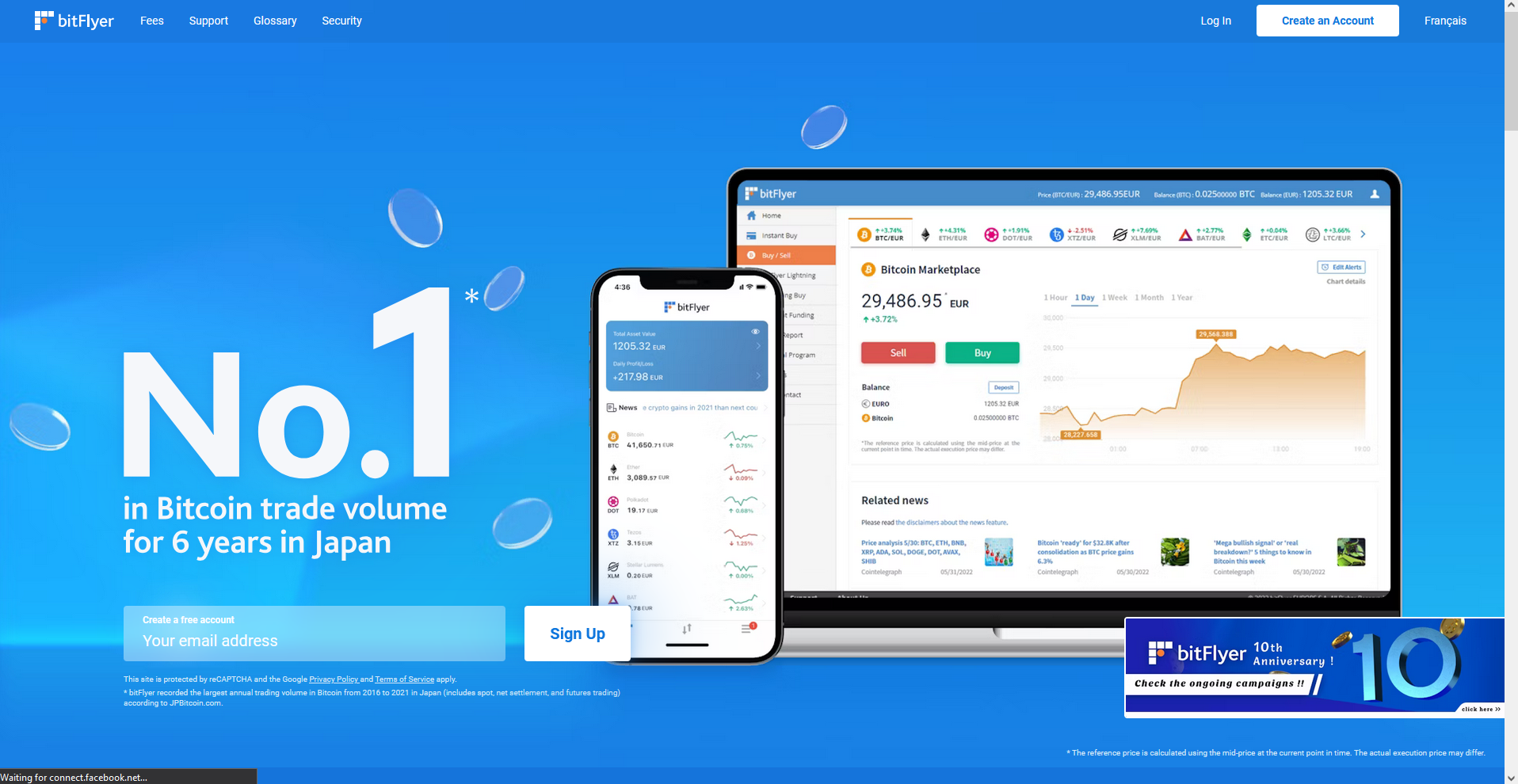
What is bitFlyer?
bitFlyer is a Japanese cryptocurrency exchange founded in 2014, offering services across Japan, the United States, and Europe. It provides platforms for both beginners and professional traders, including the bitFlyer Lightning exchange for advanced trading in the stock market. The company is recognized for its strong security measures and compliance with regulatory standards.
Advantages and Disadvantages of bitFlyer
bitFlyer Commissions and Fees
bitFlyer offers free account creation and no trading fees on standard buy/sell orders to experience real trading positions; however, it applies a spread typically ranging from 0.1% to 6%, which can exceed this margin during sudden price changes. On the bitFlyer Lightning platform, trading fees are based on a user's 30-day trading volume, starting at 0.10% for volumes less than $50,000 and decreasing to 0.03% for volumes exceeding $500 million. Bank deposits and withdrawals via ACH transfer are free, while wire withdrawals incur a $20 fee.
#2. Bitbank
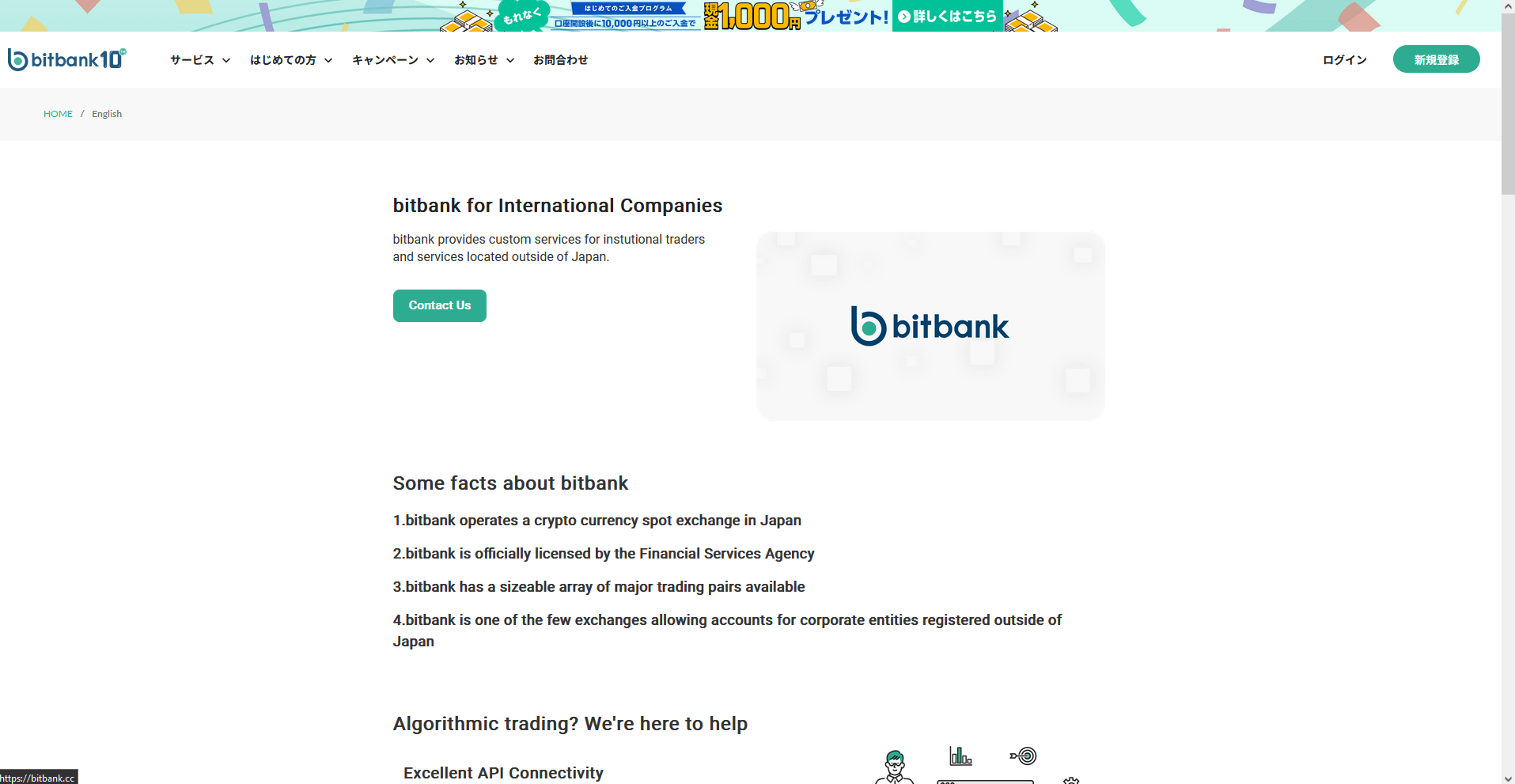
What is Bitbank?
Bitbank, established in 2014, is a Japanese exchange that facilitates the trading of digital assets like Bitcoin and Ethereum against the Japanese yen (JPY). Operating under the regulation of the Japanese Financial Services Agency (JFSA), Bitbank ensures compliance with stringent financial standards, enhancing its credibility and security. The platform is accessible via both desktop and mobile applications, offering users flexibility in managing their cryptocurrency portfolios.
Advantages and Disadvantages of Bitbank
BitbankCommissions and Fees
Bitbank employs a maker-taker fee structure, where makers receive a rebate of 0.02% for adding liquidity, effectively earning a small fee for their trades. Takers, who remove liquidity, are charged a fee of 0.12%, which is considered competitive within the industry. The platform does not impose deposit fees; however, withdrawal fees vary depending on the specific cryptocurrency. For instance, withdrawing Bitcoin incurs a fee of 0.0006 BTC, which is slightly above the global industry average.
#3. Coincheck
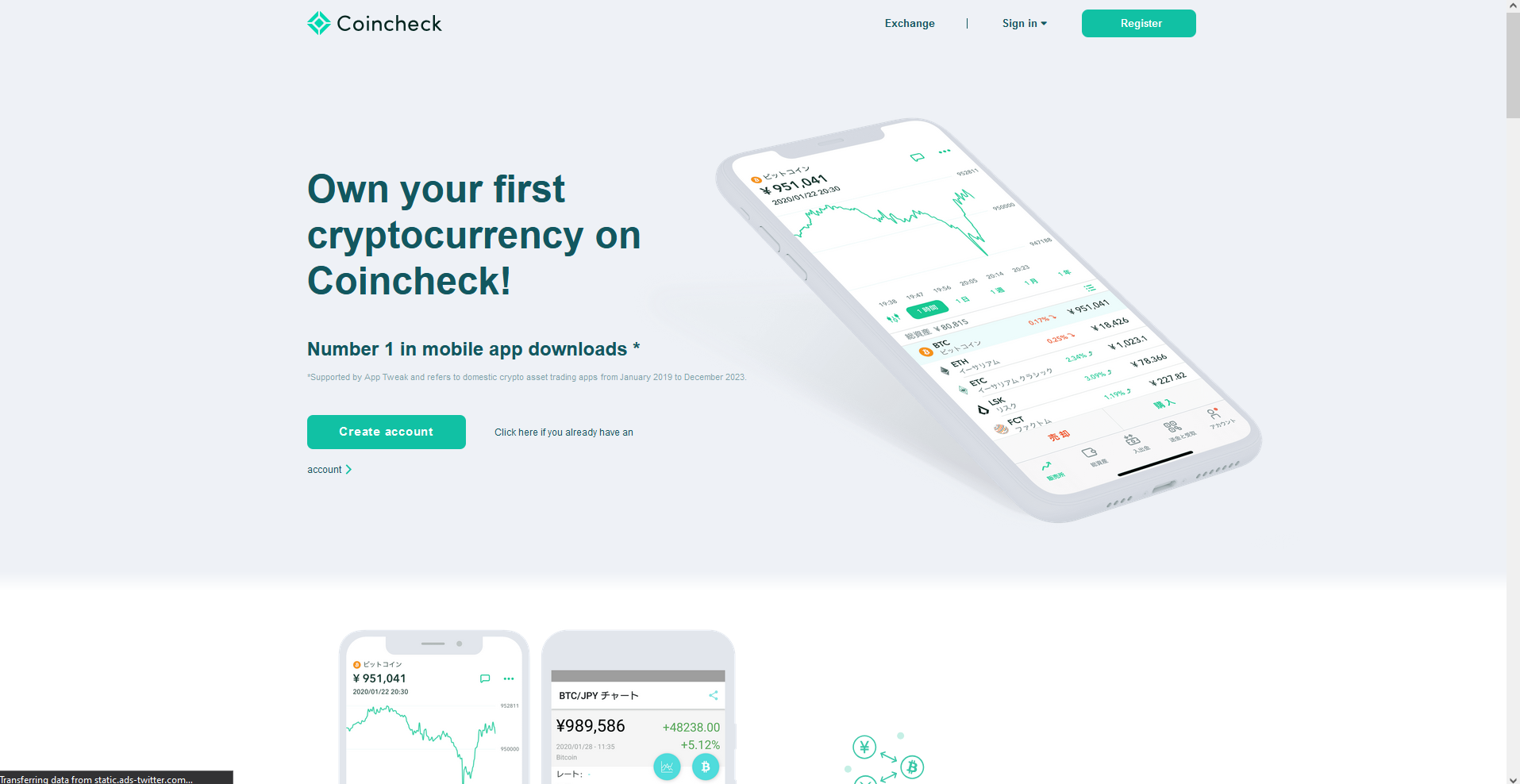
What is Coincheck?
Coincheck is a Tokyo-based cryptocurrency exchange and digital wallet service founded in 2012. It facilitates transactions between cryptocurrencies like Bitcoin and Ethereum, as well as fiat currencies, primarily serving the Japanese market. In April 2018, Coincheck was acquired by the Monex Group for 3.6 billion yen (approximately $33.4 million).
Advantages and Disadvantages of Coincheck
Coincheck Commissions and Fees
Coincheck offers commission-free trading for its users, meaning there are no fees for buying or selling cryptocurrencies on the platform. However, fees are applicable for deposits and withdrawals, varying based on the method and currency involved. For instance, withdrawing Japanese yen incurs a fixed fee of ¥407 per transaction. Additionally, cryptocurrency withdrawals have specific fees; for example, withdrawing Bitcoin costs 0.0005 BTC.
#4. Bybit
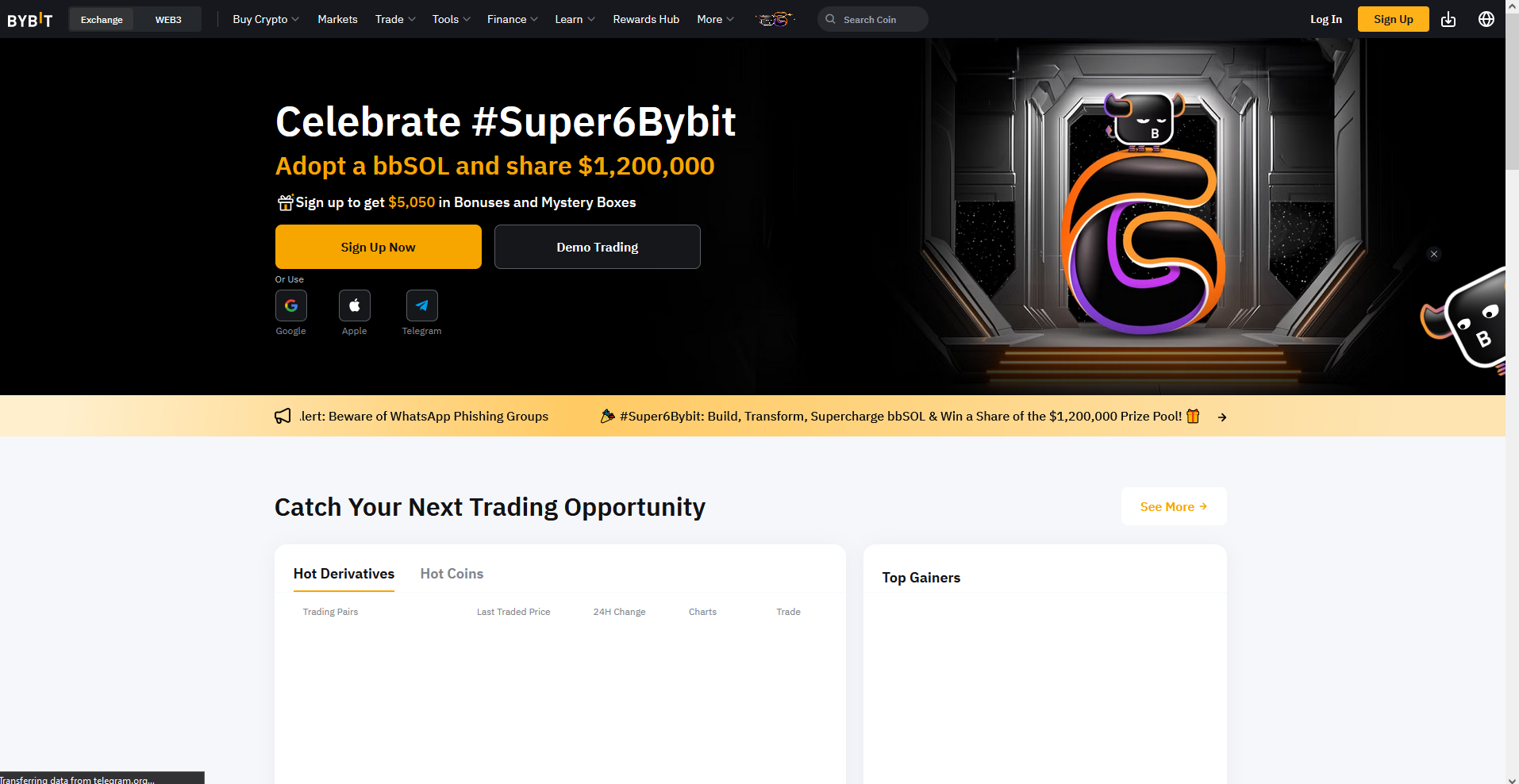
What is Bybit?
Bybit is a cryptocurrency exchange founded in 2018, offering a platform for trading digital assets, including spot and derivatives markets. Headquartered in Dubai, United Arab Emirates, it has rapidly grown to serve over 10 million users worldwide. Bybit provides advanced trading features such as up to 100x leverage on Bitcoin trades and a testnet environment for risk-free practice.
Advantages and Disadvantages of Bybit
Bybit Commissions and Fees
Bybit employs a maker-taker fee model across its trading platforms. For spot trading, both maker and taker fees are set at 0.1% for non-VIP users. In derivatives trading, non-VIP users incur a maker fee of 0.02% and a taker fee of 0.055%. Bybit also offers a tiered fee structure, providing reduced fees for users with higher trading volumes or those participating in its VIP program.
#5. Zaif
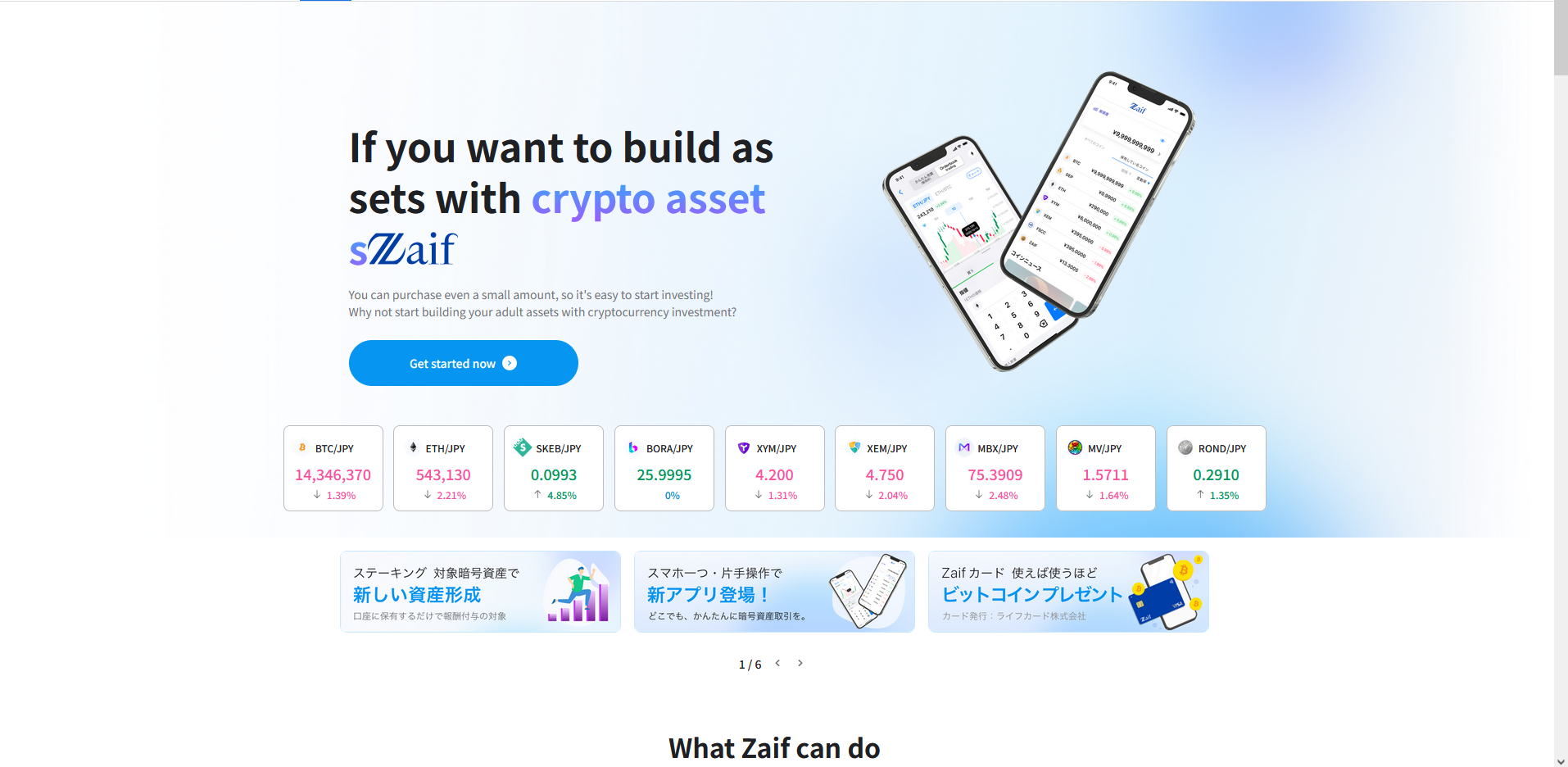
What is Zaif?
Zaif is a Japan-based cryptocurrency exchange established in 2014, recognized as the first licensed platform by the Japanese Financial Services Agency (JFSA). It offers services such as spot trading, margin trading with up to 7.7x leverage, and a referral program. The platform supports over 40 cryptocurrencies, including its native Zaif Token (ZAIF), and facilitates trading against Bitcoin (BTC) and Japanese Yen (JPY).
Advantages and Disadvantages of Zaif
Zaif Commissions and Fees
Zaif implements a maker-taker fee structure, with maker fees set at 0% and taker fees ranging from 0.1% to 0.3%, depending on the trading pair. Withdrawal fees vary by cryptocurrency; for instance, Bitcoin withdrawals incur a fee between 0.0001 and 0.01 BTC. Deposits in Japanese Yen are subject to fees based on the method and amount, such as 495 JPY for amounts less than 30,000 JPY via convenience deposit.
| Rank | Broker/Exchange | Description |
| 6 | KuCoin | KuCoin is a globally renowned exchange supporting over 900 cryptocurrencies, offering very low trading fees (from 0.1%), a diverse marketplace for trading bots, and a wide community for Japanese traders. The platform stands out for new altcoin listings, automation tools, and strong liquidity, making it popular for both beginners and advanced traders seeking breadth and fast access. |
| 7 | SBI VC Trade | SBI VC Trade is backed by financial giant SBI, regulated by the FSA, and highly trusted in Japan for institutional-grade security. It's known for specializing in XRP, efficient bank integration, competitive trading fees, and tailored services for both retail and professional investors. SBI VC Trade is ideal for those prioritizing security and broad fiat/crypto access. |
| 8 | GMO Coin | GMO Coin is a long-standing FSA-approved Japanese exchange with spot and futures trading, robust JPY banking support, advanced tech, and strong security. The exchange is praised for its reliability, competitive fees, and innovation, making it a mainstay for serious Japanese traders. |
| 9 | OKJ | OKJ is a leading domestic Bitcoin exchange with full Japanese regulatory licensing, recurring buy options, educational assets, and strong integration for JPY deposits. OKJ is popular for its reliability, transparency, and is a preferred entry-level exchange in Japan. |
| 10 | BitTrade | BitTrade operates under Japanese FSA license, offering a secure platform for various crypto assets, streamlined JPY funding, and comprehensive desktop/mobile trading tools. Its strong local focus and regulatory protections make it attractive to beginners and regular investors. |
| 11 | BTCBOX | BTCBOX is an FSA-licensed Bitcoin-centric exchange, growing its multi-asset support and maintaining some of the lowest crypto fees domestically. Its secure, simple user interface serves newcomers and casual traders seeking safe access to Bitcoin and top cryptos. |
| 12 | DMM Bitcoin | DMM Bitcoin is owned by DMM.com, FSA-registered, and delivers leveraged crypto trading, innovative risk controls, and seamless retail access for JPY users. Its professional-grade security and transparent pricing make it ideal for high-volume local traders. |
| 13 | Rakuten Wallet | Rakuten Wallet is part of the Rakuten Group, FSA-regulated, and trusted for major coin support, smooth integration with Rakuten’s services, and its mobile-first crypto trading. The platform is highly accessible and favored by mainstream Japanese retail traders. |
| 14 | DeCurret | DeCurret is regulated by FSA, focuses on corporate and retail adoption, delivers advanced backend settlement tech, and smooth transactions for JPY and digital assets. It's designed for those interested in digital asset transfers and payments in Japan. |
| 15 | FISCO | FISCO, a regulated exchange under the FISCO Group, offers safe trading for Bitcoin and ERC-20 tokens in Japan with strong compliance and transparency, appealing to long-term investors. |
| 16 | LVC (LINE) | LVC is LINE’s crypto service, integrated into Japan’s top messaging app, FSA-approved, and user-friendly for buying and holding major coins directly within LINE’s secure wallet. |
| 17 | Huobi Japan | Huobi Japan, the local branch of the global Huobi exchange, is FSA-regulated and provides deep liquidity, extensive coin support, and secure asset custody with tailored fiat onboarding for Japanese clients. |
| 18 | WhiteBIT | WhiteBIT is praised for advanced additional services including launchpad integration and crypto cards, an active esports focus, and strong Japanese operational standards. |
| 19 | MEXC | MEXC is a global platform servicing Japan with access to 4,000+ cryptocurrencies, zero percent market maker fees, frequent trading competitions, and unique futures trading opportunities, making it attractive for active and competitive traders. |
| 20 | Best Wallet | Best Wallet is notable as the top-ranked non-custodial Japanese platform in 2025, supporting trading and storing across 60+ blockchain networks, fiat support, and high security standards for users seeking decentralized options. |
Tips for Choosing a Crypto Broker in Japan
When selecting the best crypto brokers in Japan, consider factors that align with your trading goals and expertise. Japanese crypto exchanges offer various features, but prioritize those regulated by Japan's Financial Services Agency to ensure compliance with Japanese crypto regulations under the Payment Services Act. Look for platforms with robust security measures like two-factor authentication and user-friendly interfaces to protect your crypto assets and optimize your trading experience.
Evaluate the platform's offerings, such as advanced trading tools, margin trading, and copy trading, to cater to experienced traders or beginners. Analyze the trading fees, withdrawal fees, and trading volume on the top Japanese crypto exchanges to ensure cost-effective and efficient transactions. Platforms that support fiat currency like Japanese yen, multiple exchanges, and payment methods such as bank transfers or credit or debit cards can enhance your seamless trading experience. Lastly, consider brokers with educational resources, helpful customer support, and features like mobile trading apps to adapt to evolving market trends in the crypto market.
Also Read: The 5 Best Trading Platforms in Japan in 2024: Elevate Your Investments
Conclusion
For those exploring the best crypto brokers in Japan, it’s crucial to assess platforms offering competitive advantages like robust crypto exchange options tailored to japanese crypto exchanges. The market caters to a variety of needs, providing advanced trading tools and a secure environment for both novice and experienced traders. Engaging with the crypto market in Japan ensures access to diverse trading platforms and features that align with crypto trading legal frameworks.
Key considerations include trading fees, trading volume, and adherence to japanese crypto regulations under Japan's Financial Services Agency. Platforms with features like copy trading, margin trading, and advanced trading features are especially appealing. With seamless mobile trading apps, efficient bank transfers, and low fees, Japanese traders can enjoy a seamless trading experience while managing crypto assets for both passive income and maximize profits.
FAQ:
Regulation & Safety
1) Are crypto brokers legal in Japan? Yes, Japan permits crypto trading under a regulated framework. Brokers/exchanges operating for Japanese residents typically comply with local rules and self-regulatory standards. For a curated list of compliant, user-friendly platforms, see our guide to the best crypto brokers in Japan.
2) How do I check if a broker is reputable? Look for transparent fees, robust security practices, and long operating histories. Review independent analyses such as our deep dives on major platforms, e.g., Binance review, Bybit review, Gate.io review, and KuCoin review.
3) What security features should I expect from a Japan-friendly broker? Expect 2FA, withdrawal whitelists, cold-wallet reserves, and regular security disclosures. Pair exchange security with your own storage best practices, compare setups in Ledger vs Trezor.
4) Can I keep all my funds on an exchange? You can, but best practice is to keep trading balances on the platform and store long-term holdings in self-custody. New to wallets? Start with the basics: What is a mobile wallet?
5) Are Japan users protected against scams? Regulation helps, but vigilance is essential. Study common red flags across our broker investigations to sharpen your scam radar (browse the “scam” tag in the sitemap) and use only trusted platforms from the Japan brokers short-list.
Accounts, KYC & Funding
6) What documents do I need to open a crypto account in Japan? Typically: government ID, proof of address, and sometimes source-of-funds info. Expect KYC during signup and periodic re-verification.
7) How can I deposit JPY? Common options include bank transfer and card payments; availability varies by broker. Compare funding/fees within individual reviews like Bybit and Gate.io.
8) Are deposit/withdrawal fees standard? No, fees differ by method and platform. Always check the fee schedule and network withdrawal fees; our platform reviews (e.g., Binance, KuCoin) summarize key costs.
9) Can I use multiple brokers? Yes, and many traders do so for liquidity, coin listings, and fee optimization. Keep a central, secure wallet for consolidation (see Ledger vs Trezor).
Platforms, Tools & Order Types
10) What order types matter most for crypto trading in Japan? You’ll commonly use market, limit, stop-loss, and take-profit. For timing entries/exits, explore indicators that measure volatility or execution quality (e.g., Volatility Indicator, VWAP indicator).
11) Do Japan-friendly brokers offer derivatives? Many do, though availability and leverage ceilings vary by platform and account verification level. Review specifics in our broker write-ups: Bybit and Binance.
12) Is copy trading supported? Some platforms and third-party tools enable copy/strategy following. Always assess strategy risk and drawdowns before allocating capital.
Assets & Listings
13) Which cryptocurrencies are popular with Japan traders? BTC and ETH dominate volume, followed by majors like XRP, ADA, SOL, etc. For fundamentals, see primers like Bitcoin for Dummies and asset explainers such as What is VeChain?.
14) Can I access DeFi through a Japan broker? Centralized brokers focus on spot/derivatives. To engage DeFi directly, you’ll typically withdraw to a self-custody wallet and interact with protocols (read: Decentralized Finance (DeFi)).
15) Are STOs (Security Token Offerings) available? Security tokens are regulated differently from utility tokens. Understand the framework and investor considerations in our guide to Security Token Offerings.
Strategy & Risk
16) What’s a beginner-friendly approach for Japan-based traders? Define risk per trade, use dollar-cost averaging for long-term positions, and avoid over-leverage. Start with foundational reads like Money Management in Trading and Risk Management in Forex Trading (concepts translate well to crypto).
17) Is crypto scalping viable on Japan brokers? Yes, liquid pairs and tight spreads help. But costs and slippage matter. Learn the mechanics in Scalping Crypto.
18) What about arbitrage opportunities? Arbitrage exists across venues but requires speed, fees control, and operational discipline. Start with our overview of Crypto Arbitrage Trading Strategies.
19) How do I handle volatility? Use position sizing, stop-losses, and avoid emotional trades. Indicators like the Volatility Indicator can help gauge regime shifts.
20) Are meme coins safe to trade? They’re highly speculative. If you participate, size small, pre-define exits, and avoid leverage.
Taxes & Legal
21) Do I pay taxes on crypto in Japan? Crypto gains are typically taxable. Keep detailed records of trades, deposits/withdrawals, and fees. (Consult a local tax professional for current specifics.)
22) Are airdrops, staking, or yield taxable? Often yes. Document timing, fair-market value on receipt, and subsequent gains/losses.
How-To & Best Practices
23) What’s the safest way to store long-term holdings? Use reputable hardware wallets with offline key storage; keep seed phrases secure and backed up. Compare hardware options here: Ledger vs Trezor.
24) Should I separate investing from active trading? Yes, use different accounts or sub-accounts and distinct rules. This reduces emotional crossover and simplifies performance tracking.
25) How do I move coins from an exchange to my wallet? Copy your wallet’s correct network address, test with a small transfer, then move the full amount. If you’re new to wallets, start with What is a mobile wallet?.
26) How do I evaluate a new coin listed on a Japan broker? Review use case, tokenomics, development activity, and liquidity. For fundamentals practice, see asset explainers like What are Bitcoins backed by?.
Comparisons & Broker Selection
27) Which Japan-friendly broker is best for low fees? Fee structures vary, maker/taker tiers, VIP discounts, and promos matter. Compare using our platform analyses: Binance, Bybit, Gate.io, KuCoin, and the short-list of Japan crypto brokers.
28) Which broker is best for altcoin variety? Platforms differ widely in listings. Check each review’s markets section, Gate.io and KuCoin are known for broad alt coverage.
29) Which is best for derivatives? Look at liquidity, margin engine, risk controls, and funding rates. Compare experiences via our Bybit review and Binance review.
30) Mobile vs desktop, what’s better for Japan traders? Use mobile for monitoring and quick actions; use desktop for analysis and execution planning. Ensure your chosen broker has a stable, fully featured app plus a reliable web terminal.
Troubleshooting & Safety Nets
31) Why is my withdrawal pending? Network congestion, compliance checks, or security holds can delay transfers. Verify the network used and check your broker’s status page; escalate via support if delays persist.
32) I sent funds on the wrong network. Can I recover them? Sometimes, if the destination supports that network and you control the receiving wallet’s keys. If funds were sent to an exchange on an unsupported network, open a support ticket immediately.
33) My account was flagged after a large JPY deposit. What now? Brokers may request enhanced verification or source-of-funds documents. Provide the requested info promptly to restore full functionality.
Education & Mindset
34) Is crypto suitable for beginners in Japan? Yes, if you start small, focus on security, and invest time in learning. Build foundations with Bitcoin for Dummies and core risk topics like Money Management.
35) How do macro events affect crypto prices? Rates, liquidity, and risk appetite play big roles. Refresh your market literacy with primers like The Data of the Forex Market (concepts apply across asset classes).














